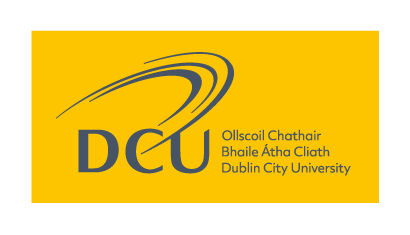Innovative Pedagogies

Share this step
In this step, we look to the future horizon by thinking about some of the new and emerging innovative pedagogies that may become more prevalent or even core to Higher Education 4.0.
A core premise of Higher Education 4.0 is that new digital technology can be harnessed to support the learning experiences of learners. These technologies may also have affordances that disrupt the traditional design and delivery of higher education, and even the system itself. However, we know that many of the claims about the disruptive impact of the “next big thing” are cloaked in a lot of hype.
Pedagogy and Technology
Technology-induced predictions about the future of higher education are usually wrapped in the language of technological determinism. While there is no denying that new developments in technology shape future societies, at the same time Society also shapes how people choose to use and design future technologies. Thus, technology is not an external force independent of society.
What this means is a dynamic tension exists between how new technology affordances might impact current practices and how learners, teachers and their institutional cultures mediate the way this technology is implemented (or not) in their own educational contexts. Put more simply, it is techno-centric to think that technology alone will lead to fundamental transformations to the learning experience. The relationship between pedagogy and technology is far more complex.
In a similar vein, it’s naive to think that new educational technology is just a tool and its real value depends on how teachers choose to use it. You will also hear people say that pedagogy should drive technology, rather than vice versa (Fawns, 2002). Such comments reflect a false dichotomy rooted in social determinism which underestimates how new features of technology create new possibilities that may impact education – irrespective of whether people choose to use the technology.
Scanlon et al.’s (2013) research in this space still provides a comprehensive analysis of what brings about change and improvement with respect to innovation and research in technology enhanced learning. Hence, this is an unhelpful perspective as pedagogy and technology are far more entangled. We encourage you to consider the likely impact of some of the new pedagogical innovations and future-focused technologies we share below, summarised also in the PDF at the bottom of this step.
Innovating Pedagogy Series
A useful research report exploring the latest innovative pedagogies is produced by a team at the UK Open University. Known as Innovating Pedagogy, each year since 2012 an annual report has been published listing 10 emerging and potentially disruptive trends in pedagogical practices. In 2020, our NIDL team at DCU was invited to contribute to this report, with distinctive themes such as post-humanist pedagogies, multisensory learning and learning through open data highlighted as potentially-transformative.
The 2021 version of the report identifies several new themes which have emerged during the COVID-19 pandemic, including:
- Best learning moments
- Gratitude as a pedagogy
- Student co-creating teaching and learning
All three, as examples, centre around the critical concept of wellbeing, a perhaps neglected potential benefit of new pedagogical approaches, but ever more critical in a time of pandemic. As the authors of the report note:
“Several of the pedagogies outlined in this report promote awareness of the role of attitudes and emotions in teaching and learning. Educators want their students to pay attention in class but, ideally, they want more: students should have the right attitude, and they should be fully engaged and deeply absorbed in their learning experience, since that will lead to higher levels of achievement and satisfaction.” (Kukulska-Hulme, et. al., 2021, p.7)
Learner-Centred Pedagogies
This emphasis on the emotional and affective elements of learning point to the need for pedagogies which emphasise a learner-centred and responsive approach. The report also speaks to the potential of new pedagogies such as Hip-Hop and Enriched Realities as a means of engaging learners and developing new types of skills and competencies. When reading the 2020 and 2021 reports in conjunction, two types of pedagogical innovation appear to emerge:
- Pedagogies enabling personalisation and more authentic, learner-centred experiences
- Pedagogies harnessing technology affordances that simplify or scaffold more complex tasks for learners, teachers and institutions.
We suggest that both these tracks are important in conceptualising what Pedagogy 4.0 might look like in the future. What do you make of these reports? What would you add to the next report?
Educause Horizon Report
A second annual report on future trends which provides a useful comparison is the Horizon Report/Teaching and Learning. There is a long history to these reports dating back to 2005 and, in the past, they have been criticised for placing too much focus on new and emerging technology at the expense of pedagogy. Some of the trends identified in the 2020 report include:
- Adaptive learning
- AI machine learning
- XR technologies
The latter refers to extended reality (XR) which blends the physical with the virtual environment to provide fully immersive virtual learning experiences. In a recent literature review on immersive virtual reality as a pedagogical tool, Hamilton et. al. (2021) claim this technology is challenging the conceptual definition of what constitutes a learning environment. It follows that our conception of what we mean by authentic and real-world learning might also need to be reframed as new XR technology blurs the boundaries.
Please consider the following questions:
- What are your thoughts on these emerging pedagogical approaches?
- What trends have you noticed in changing teaching and learning practices?
- How might we need to redefine our conception of authentic, real-world learning?
References
Scanlon, E, Sharples, M, Fenton-O’Creevy, M, Fleck, J, Cooban, C, Ferguson, R, Cross, S and Waterhouse, P. 2013. Beyond prototypes: Enabling innovation in technology-enhanced learning. DOI: https://doi.org/10.13140/2.1.1026.8163
Share this
Higher Education 4.0: Certifying Your Future

Higher Education 4.0: Certifying Your Future


Reach your personal and professional goals
Unlock access to hundreds of expert online courses and degrees from top universities and educators to gain accredited qualifications and professional CV-building certificates.
Join over 18 million learners to launch, switch or build upon your career, all at your own pace, across a wide range of topic areas.
Register to receive updates
-
Create an account to receive our newsletter, course recommendations and promotions.
Register for free







